TheoChem@RUB: General Information for Applicants
In addition, we welcome applications for hosting Marie Curie, DAAD, Alexander von Humboldt, Emmy Noether, Heisenberg and other fellows. General information about research and funding opportunities in Germany is provided by a Nationwide Gateway. You will be member of a stimulating research group and profit from the excellent research facilities at the Ruhr-Universität Bochum!
Please contact the Center for Theoretical Chemistry via theochem@theochem.rub.de for more specific information. Please note, that you should contact us well in advance to avoid any complications.
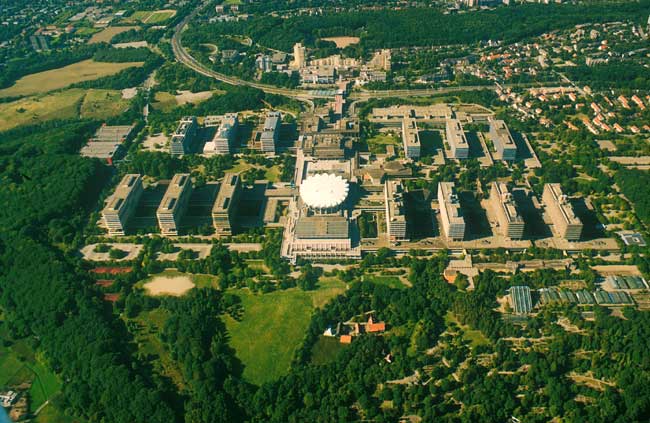
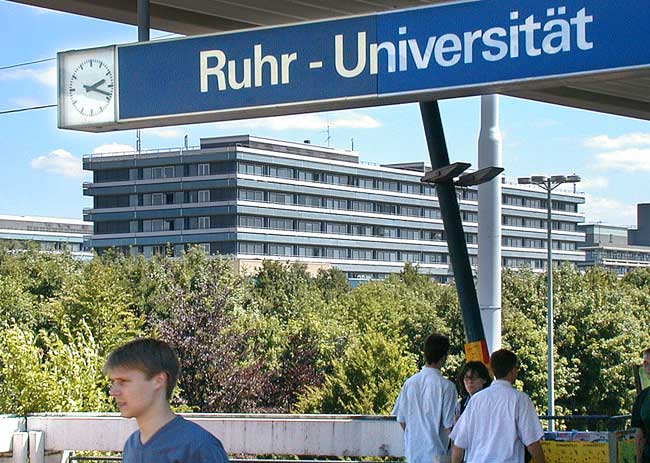 Our Subway Station |
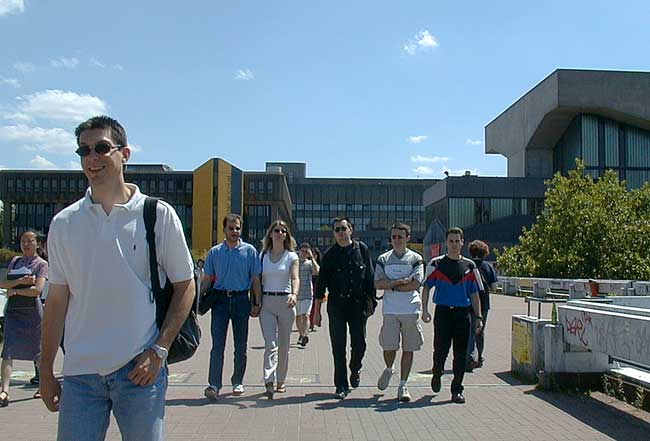 Entrance Area |
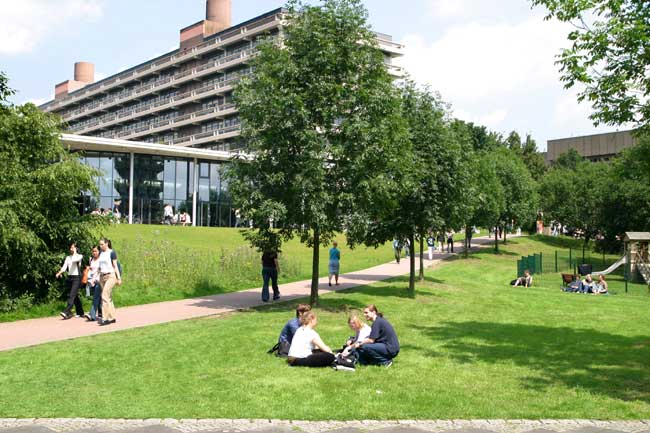 On Campus |
The Department of Chemistry and Biochemistry (Fakultät für Chemie und Biochemie) at RUB is one of the largest faculties on campus. Therein, the Center for Theoretical Chemistry (Lehrstuhl für Theoretische Chemie, headed by Professor Dominik Marx, Lehrstuhlinhaber, and formerly by Professor Werner Kutzelnigg) hosts several research groups including junior research groups (Habilitanden/Nachwuchsgruppen). All groups share common interests in "molecular or biomolecular systems" but taken together they also cover a substantial part of the entire spectrum of Theoretical Chemistry, see the Research / Forschung and the Media Gallery / Mediathek items on this site for details. Typically there are more than thirty scientists affiliated to Theoretical Chemistry at RUB being an international mix of physicists, chemists, and biochemists. This is supplemented by short- to mid-term visiting professors, scientists, and PhD students in the framework of collaborations or exchange programs.
The home of the Cluster of Excellence RESOLV (EXC 2033 "Ruhr Explores Solvation") is the Center for Solvation Science ZEMOS, a state-of-the-art research building inaugurated in 2016. RESOLV is a major research consortium devoted to research in the emerging cross-disciplinary field of Solvation Science and comprises collaborating research groups from three Universities, Max Planck and Fraunhofer Institutes with its headquarter at RUB. ZEMOS provides access to cutting-edge facilities including a staffed Core Facility Simulation with top-of-the-line HPC resources for both, molecular dynamics simulations and electronic structure calculations. The Center of Theoretical Chemistry is a key player within both RESOLV and ZEMOS.
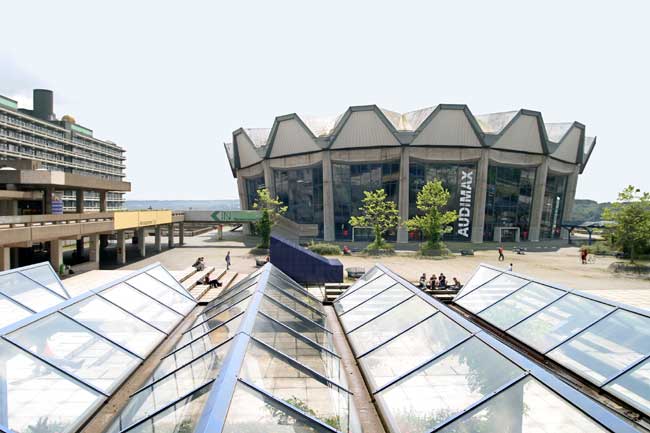 Auditorium Maximum |
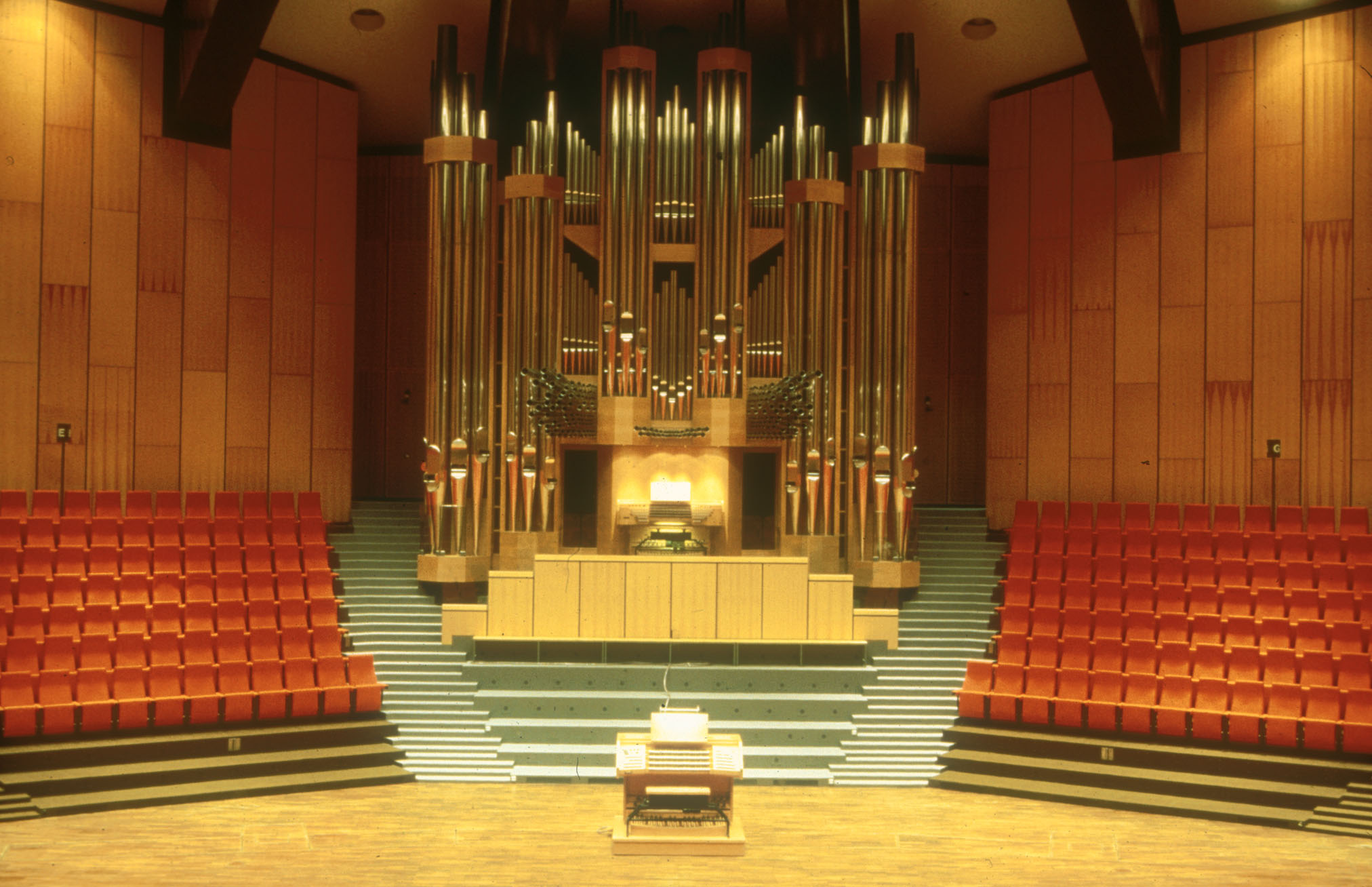 Klais Organ @ RUB |
 Art Museum @ RUB |
The Center for Theoretical Chemistry offers a broad and profound program in undergraduate, graduate, and postgraduate teaching and training in modern Theoretical Chemistry and Biochemistry. PhD students are affiliated to the "Graduate School of Chemistry and Biochemistry" (GSCB) offering a rich spectrum of lectures and courses. The School runs specially tailored programs aimed at foreign PhD students covering both scientific and cultural events. In addition to having the possibility to attend the regular series of Theoretical Chemistry Colloquia (held in English) the students and postdocs will have the opportunity to be trained in complementary skills in the field of hardware and software management in a complex environment.
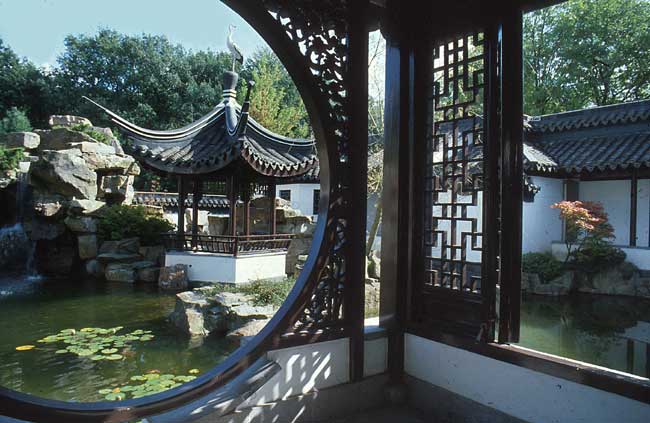 Chinese Garden @ RUB |
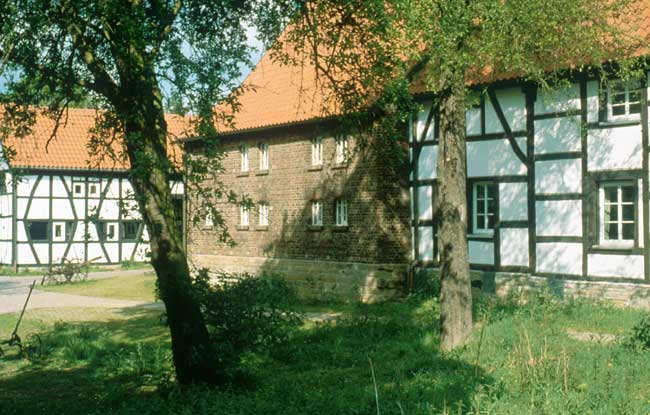 Meeting Center @ RUB |
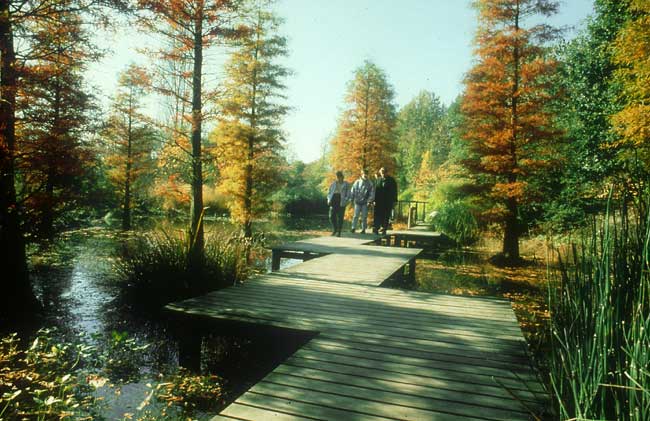 Botanical Garden @ RUB |
The Center for Theoretical Chemistry at RUB is well equipped with computer hardware and software. This includes high-end graphics desktop PCs for each member - offices are spacious, well equipped and are shared by two or three colleagues - and a farm of servers for code development and tests supplemented by state-of-the-art graphics facilities. For applications and production runs TheoChem@RUB operates a broad range of computational resources. These machines include a compute server farm for multi-core but single-node applications and altogether eleven different clusters for high-performance parallel computing. Six of these clusters have a high-speed Infiniband interconnect (up to ConnectX-3 HCAs with QDR bandwidth) whereas the remaining clusters have at least one dedicated gigabit ethernet network. The number of two-way nodes varies from 12 to 180. Altogether, the local equipment adds up to more than 150 TeraFlop/s of computing power, nearly 28 TeraByte of RAM, and 180 TeraByte of RAID5 or RAID6 disk space (numbers as of January 2017). Additional resources, both in terms of office space and parallel compute platforms tailored for MD and QC applications, are contributed by the Core Facility Simulation of the new research building ZEMOS, the Center for Solvation Science at RUB. The locally available compute resources are supplemented by several other parallel platforms in the state of North Rhine-Westphalia (accessed via Ressourcenverbund NRW) and also by grants from the three national supercomputer centers (Höchstleistungsrechenzentren) in Germany including Large Scale Projects granted by the Gauss Centre for Supercomputing (GCS).



